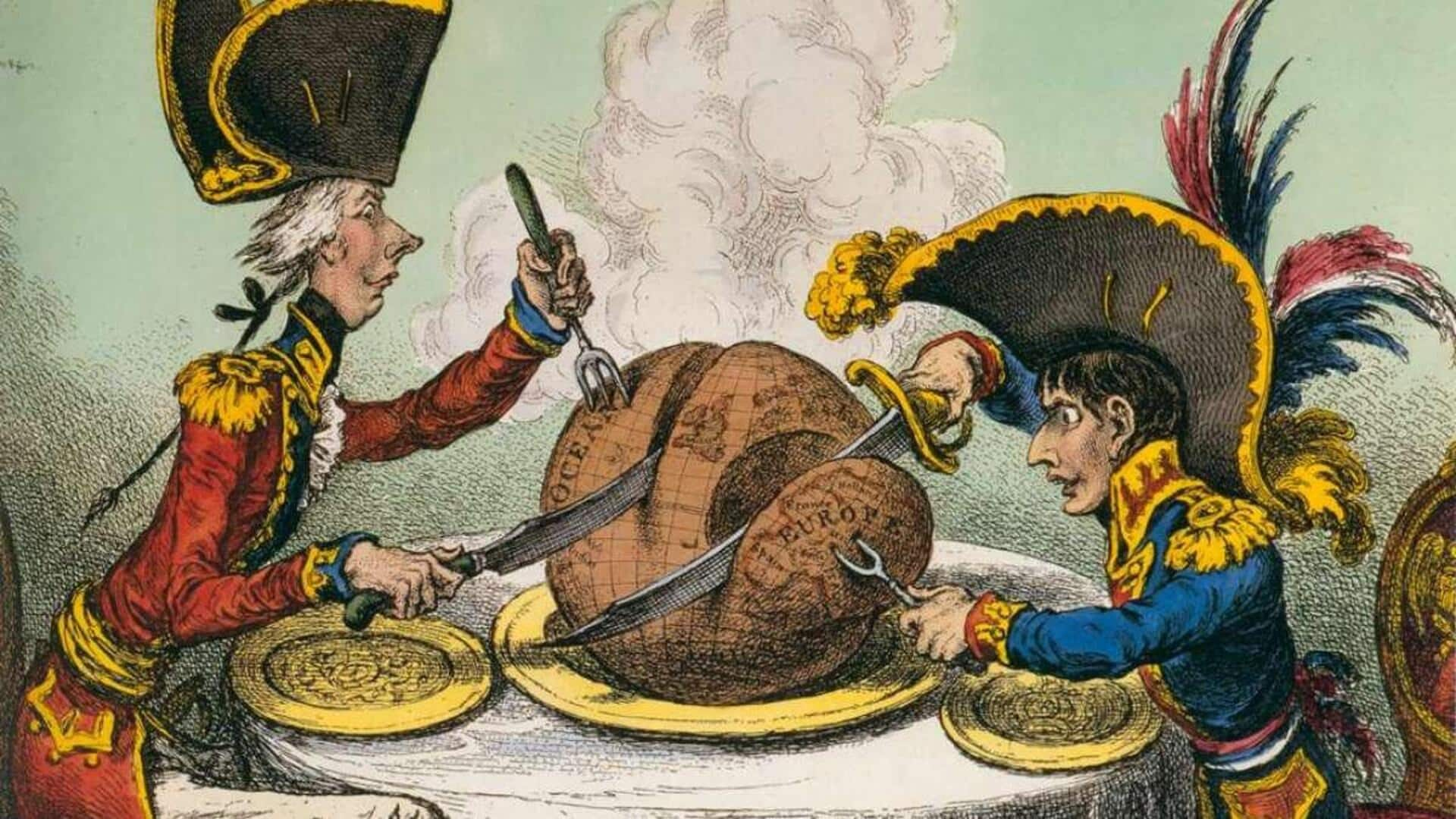
UK's richest 10% extracted half India's wealth during colonialism: Oxfam
What's the story
According to Oxfam International's latest report, Takers, not Makers, the United Kingdom looted an eye-watering $64.82 trillion from India during its colonial rule between 1765 and 1900. The report, released at the World Economic Forum Annual Meeting in Davos, adds that this wealth mainly enriched the UK's richest 10%, who received $33.8 trillion or 52% of the total loot.
Wealth shift
Colonialism's impact on wealth distribution and industrial output
The report further highlights colonialism greatly benefited the rising middle class, which got 32% of the income looted from India. It observes a drastic change in global industrial output; in 1750, India contributed roughly 25% of the global industrial output but by 1900 it had fallen to a mere 2%. Oxfam blames Britain's protectionist policies against Asian textiles for the decline.
Trade influence
Colonial trade patterns and their impact on industrial growth
Oxfam's report also highlights that disruptions in colonial trade patterns during World War One temporarily boosted industrial growth in colonies. It notes that private multinationals often spearheaded colonial expansion and profited immensely from it. Some even employed their own armies to suppress rebellions, further highlighting the extent of their power and influence.
Corporate legacy
Legacy of colonialism in modern multinational corporations
The Oxfam report argues that many of today's wealthiest in the UK can trace their wealth back to slavery and colonialism. It describes the British state as a "colonial drug pusher," with opium production in India significantly contributing to British revenue. The report also discusses biopiracy and claims fossil fuel exploitation began during colonial times, continuing today and exacerbating climate change.
Persistent disparities
Colonialism's role in current global inequalities
The report ends by stressing on persistent inequalities stemming from colonial history. It urges addressing these systemic problems to build a fairer world. "Legacies of inequality and pathologies of plunder, pioneered during the time of historical colonialism, continue to shape modern lives," Oxfam said. The body also slammed partnerships between development finance institutes and private capital from the North for pushing the privatization of public services.